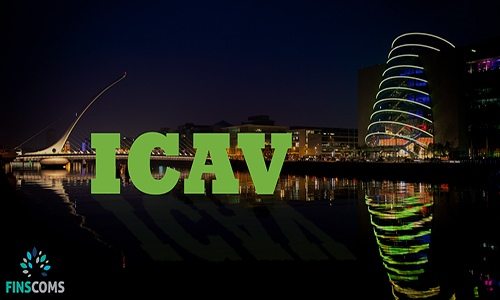
Whilst there are many structures the choose from when establishing a fund this article focuses on The Irish Collective Asset-management Vehicle (ICAV). The ICAV provides a flexible corporate structure which can be used to establish both UCITS and alternative investment funds. ICAV attracted EUR8.4bn to Irish funds in its first 12 months of existence becoming the Irish fund vehicle of choice in both the retail and professional investor sectors.


The success of the ICAV will continue to grow.
The success of the ICAV will continue to grow as the number of investment managers, international investors, fund financing counterparties, and fund service providers become more and more comfortable with the associated variables from structuring, incorporation, management, to distribution of ICAVs. The ICAV has without doubt enhanced Ireland’s competitiveness as domicile of choice for investment funds by virtue of its attractive legal structure, ease of conversion, and critically it also represents a simpler product for US investors from a tax perspective.
The main benefits
Structure
Before the establishment of the ICAV, the only viable option for an Irish corporate fund vehicle was to set up as an ‘investment company’ which is constituted as a public limited company (PLC) under the general Irish Companies Act. PLCs are subject to a number of company law requirements which are viewed as inappropriate for investment funds in contrast the ICAV is not subject to these requirements. As such there is a range of cost and administration cutting benefits. The main differences in requirements between a PLC and the ICAV are;
- The Central Bank of Ireland is the competent authority for the incorporation of the ICAV. It is both the registration and the supervisory authority for the ICAV.
- An ICAV has a governing document known as an instrument of incorporation (“IOI”). Similar to the memorandum and articles of association of a plc, the IOI is the constitutional document of an ICAV.
- No requirement to operate on the principle of risk spreading
- No requirement to have an annual general meeting once provision of at least 60 days written notice to all of the ICAV’s shareholders.
- No requirement to receive shareholder approval to amend the instrument of incorporation where the depositary is satisfied that such amendment is not prejudicial to shareholders and the amendment is not one which the Central Bank requires to be approved by shareholders
- Annual financial statements are allowed to be prepared at sub-fund level
As the ICAV legislation is distinct from that governing other Irish companies, it should be “future proof” against inadvertent consequences brought about from changes in Irish and/or European company law.
Tax
ICAVs are subject to the same tax regime as other Irish funds. The key components of this regime are as follows:
- NO Irish income tax at the fund level.
- Access to Ireland’s extensive double taxation agreements minimising the effects of foreign withholding taxes on returns on investments.
- 41% exit tax on distributions to Irish investors but NO Irish withholding tax/exit tax on all distributions to non-Irish investors and certain categories of Irish investors.
- NO Irish withholding tax/exit tax on all distributions where the shares are held in a recognised clearance system.
- NO transfer taxes on the issue, redemption or transfer of shares.
- Exemptions from Value Added Tax for many services required by a fund (in particular fund management services).
- NO hidden taxes (e.g. wealth taxes / net asset taxes).

“One of the main reasons that we are seeing US investors keenly adopting the ICAV is that it simplifies the US tax treatment. This is because the ICAV essentially allows taxable US investors to be regarded as if they had invested directly in the underlying investments of the ICAV.”
One of the main reasons that we are seeing US investors keenly adopting the ICAV is that it simplifies the US tax treatment. This is because the ICAV essentially allows taxable US investors to be regarded as if they had invested directly in the underlying investments of the ICAV. Thus allowing US investors access to relief under US tax treaties as well as access to tax credits pertaining to investments made by the fund. This also means that the complex US Passive Foreign Investment Company (PFIC) regime does not apply in this scenario. This management can be achieved because the ICAV is able to make an election under the US “check the box” rules to be treated as a “pass through” entity for US federal income tax purposes. Resulting in an ICAV being treated as a “partnership” (if it has more than one investor) or a “disregarded entity” (if it has only one investor) for US tax purposes. In contrast, an Irish fund established as a PLC cannot use the “check the box” option because it is deemed to be a “per se” corporation.
Conversion
Notably, established funds incorporated as ‘investment companies’ have the option of converting to ICAV status. Funds domiciled outside of Ireland can migrate into Ireland as ICAVs by continuation. An existing Irish ‘investment company’ can convert into an ICAV using a very straightforward conversion process. Conversion is by way of continuation, so that an ‘investment company’ converting into an ICAV keeps its identity and track 2 record. There will be no Irish tax on the conversion. A large number of existing Irish ‘investment companies’ will utilise the straightforward mechanism of conversion into an ICAV. To date there have only been a small number of conversions (roughly 25%), this is set to increase as a large number of UCITS managers are in the process of converting their ‘investment companies’ into an ICAV as part of the overall UCITS V implementation.
To date the ICAV has been a success. Combining the benefits of the ICAV with Ireland’s reputation as being one of the leading jurisdictions for the establishment and/or re-domiciliation of regulated investment funds, results in Ireland becoming the domicile of choice for funds looking to sell to U.S. taxable investors. Finscoms, through our chosen partners, will help you on your way to choosing a suitable structure and jurisdiction.
KEN CARMODY
